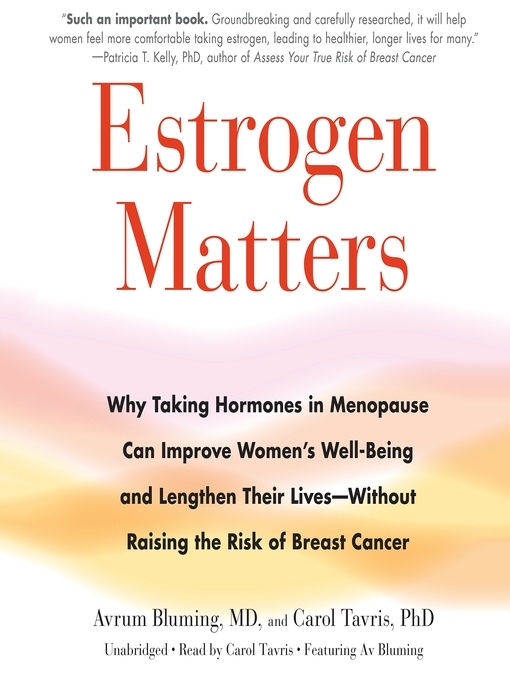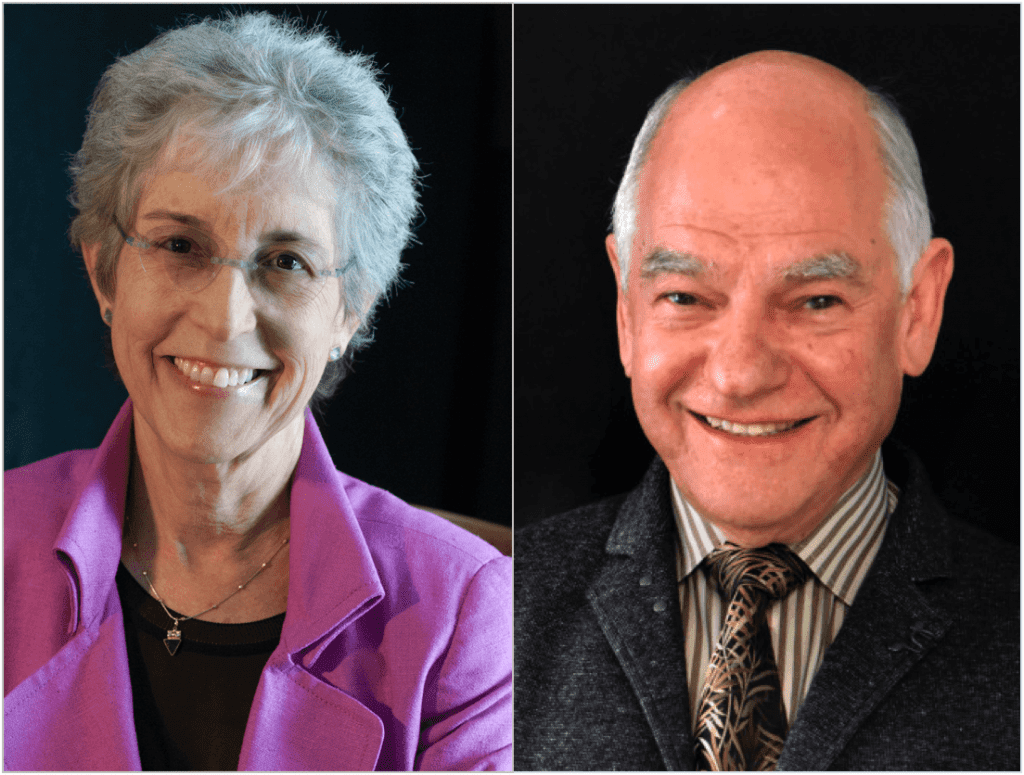In this episode, Carol Tavris, social psychologist and author of Mistakes Were Made (But Not By Me), and Avrum Bluming, hematologist, medical oncologist, and emeritus clinical professor at USC, discuss their collaboration on their recent book, Estrogen Matters. Their book takes on the very polarizing and confusing topic of hormone replacement therapy for women suffering with symptoms of menopause. In many ways, the story and history of HRT is in striking parallel to the bad science that led up to the dietary guidelines being set forth in 1980. Carol and Avrum make a compelling case that most women benefit greatly from being on postmenopausal hormone replacement therapy, and can do so without increasing their risk of breast cancer. We also cover the history of HRT, the impact of the Women’s Health Initiative, and take a deep dive into each of the clinical conditions for which HRT should be considered, such as cardiovascular disease and neurodegenerative disease, and osteoporosis, to name a few.
We discuss:
Sign up for my weekly email
Every week I’ll send you an exclusive, non-lame email on the latest in longevity. This includes topics I’ve been exploring, the most interesting research I’ve found, and strategies and tactics to optimize performance, exercise, nutrition, sleep, stress, and more.
The background of Carol and Avrum, and the impetus for writing Estrogen Matters [8:45]
Figure 1. Cover of Estrogen Matters. Image credit: amazon.com
What’s a social psychologist writing about estrogen for?
Why in particular has this issue become something that’s resonated with you?
However…
“The major assumption dealing with breast cancer is that estrogen causes breast cancer, and it doesn’t. Almost everything we’ve done in the treatment of breast cancer is based on that assumption so that women have been denied estrogen for at least the last 30 years. . . and the result is that many women have been hurt by being denied that medicine.”
The sad early history of hormone replacement therapy, treatments for prostate and breast cancer, and the difference between the treatment of women vs. men [14:00]
Carol and Avrum’s 2009 paper, Hormone Replacement Therapy: Real Concerns and False Alarms, has a beautiful time course of hormone replacement therapy in women:
Figure 2. HRT and Breast Cancer: A timeline of relevant events and studies. Image credit: (Bluming and Tavris, 2009)
Men vs. Women: Comparing the early history of hormone replacement therapy (HRT)
Using the example of how we treated prostate cancer in men with breast cancer in women…
Would you like access to extensive show notes, references, and a transcript of this podcast (and more)?
Check out this post to see an example of what the substantial show notes look like. Become a member today to get access…
Carol Tavris, Ph.D. & Avrum Bluming, M.D.
Carol Tavris, Ph.D.
Carol Tavris received her Ph.D. in social psychology from the University of Michigan. Her books include Mistakes Were Made (But Not by Me), with Elliot Aronson; Anger: The Misunderstood Emotion, and The Mismeasure of Woman. She has written articles, op-eds, and book reviews on topics in psychological science for a wide array of publications — including the Los Angeles Times, the New York Times Book Review, the Wall Street Journal, and the TLS — and a column, “The Gadfly,” for Skeptic magazine. She is a fellow of the Association for Psychological Science and has received numerous awards for her efforts to promote gender equality, science, and skepticism.
Avrum Bluming, M.D.
Avrum Bluming received his M.D. from the Columbia College of Physicians and Surgeons. He spent four years as a senior investigator for the National Cancer Institute and for two of those years was director of the Lymphoma Treatment Center in Kampala, Uganda. He organized the first study of lumpectomy for the treatment of breast cancer in Southern California in 1978, and for more than two decades he has been studying the benefits and risks of hormone replacement therapy administered to women with a history of breast cancer. Dr. Bluming has served as a clinical professor of medicine at USC and has been an invited speaker at the Royal College of Physicians in London and the Pasteur Institute in Paris. He was elected to mastership in the American College of Physicians, an honor accorded to only five hundred of the over one hundred thousand board-certified internists in this country.
This content was originally published here.







